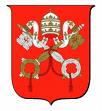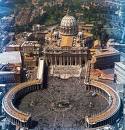CATHOLICISM AT THE CROSSROADS by Paul Lakefield
In his book Catholicism at the CrossroadsPaul Lakeland examines the Catholic Church of 2008. Lakeland teaches at Fairfield University and holds the Aloysius P. Kelly S.J. Chair in Catholic Studies there. He has written previous books on the subject, one  of which won first place for theology in the Catholic Press Association’s 2005 awards. Here are a few of he points he makes in this well thought out and reasonable book.
of which won first place for theology in the Catholic Press Association’s 2005 awards. Here are a few of he points he makes in this well thought out and reasonable book.
In his list of some ten steps toward a more adult church he says:
"The lay/clerical relationship needs to move from one of child/parent to one of equality. Adult behavior among laity is non negotiable. Acceptance of the laity as equally adult is nonnegotiable for bishops and clergy… for most of our history, lay people have been treated as the children of the clergy."
How very true and disturbing that for most of our history lay people have been treated like children and not adults. Even when the laity is more qualified in matters such as finances, administration and other areas involved in the church, Priests  and Bishops maintain a tight hold over all parish and church matters. The sex scandal and other modern crisis in the church have demonstrated how incompetent and unqualified some church leaders have been and the tremendous difference it would have made had laity been involved.
and Bishops maintain a tight hold over all parish and church matters. The sex scandal and other modern crisis in the church have demonstrated how incompetent and unqualified some church leaders have been and the tremendous difference it would have made had laity been involved.
In his argument for substantial participation by the laity of the church he says:
"There must be real and significant lay participation in the process by which pastors and bishops are selected. In the church of the first three centuries it would have been inconceivable that a church leader could have been selected without the involvement of the local community. The laity of the early church had a significant voice in church governance. Clear evidence has established that lay people were consulted as a matter of course about the work of the church, and especially about the selection of their leaders. Where they did not directly elect them, they were closely involved in the process."
Popes of the last two centuries are responsible for concentrating more and more authority in the Vatican to the exclusion of universal participation in church affairs. Fearful of what they saw as losing control, popes took increasingly more conservative positions as well taking steps to claim exclusive authority in church affairs that was previously unknown in the history of the church. That includes the claim of papal infallibility which was unknown in the church until the 1800's.
He argues that the Church for too long has focused on excluding rather than including its members especially with regard to the Eucharist. He says the church is often is involved in exclusion such as the denial of access to the Eucharist for divorced and remarried Catholics, in matters involving how gays and lesbians may live responsibly in the church, how married couples may express their love sexually, who can be ordained, what ex priests should be allowed to do in the community of faith, how we treat our theologians and how we treat our politicians. He sees the inconsistency of the church in the emphais priority of its teachings:
"Catholic politicians trying to balance the competing demands of their public trust and their religious identity are pilloried if the seem not to conform to the church’s teachings on abortion, but not if they ignore the church’s teachings on war.
The Eurcharist is the central sacrament of the church. Yet church leaders apply rules which refuse to acknowledge the millions of Catholics who are denied participation. Worse the Eurcharist is too often used as a weapon of punishment. Politicians who are threatened with denial of participation if they don't change their stand on issues involving gay marriage or abortion. Regarding the Eucharist Lakeland says:
"There needs to be a serious consideration of the implications of the centrality of the Eucharist in Catholic tradition for the life and structure of the church. Who is taking the Eucharist more seriously? Rome…or the laity, who look around them and find access to the Eucharist to be increasingly difficult? The Vatican liturgical experts who have produced a large volume of ‘rituals for the priestless liturgies’ and seem obsessed by who can stand where, who can touch what, and how many bows are deemed essential to devotion, or those who ask why married men or women cannot be admitted to ordination or whether it might not be a good idea to call on laicized priests to return the ministry?"
Lakeland maintains that the life of the church will not be fully renewed until women achieve their rightful positions as fully equally partners with men. He notes the centuries of discrimination against women in spite of their significant role in the early church. He believes there should be women priests, bishops, cardinals and pope.
He notes the inconsistency of emphasis by the Church. The church too often ignores its own teaching on war, poverty, global capitalism and capital punishment while using a single issue like abortion as the test of morality in a variety of situations.
These are all valid and excellent discussion points, if only discussion was allowed. Books are still banned and theologians still silenced. Strict adherence to Vatican policy is still insisted upon subject to sanctions and punishment. If anything, the church is far more conservative and restrictive today then at any time since Vatican II. How much better the church would be if the matters raised in this book were the subject of serious discussion among the Bishops and leaders of the church.
